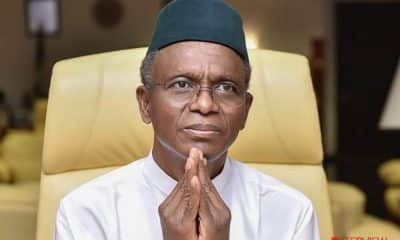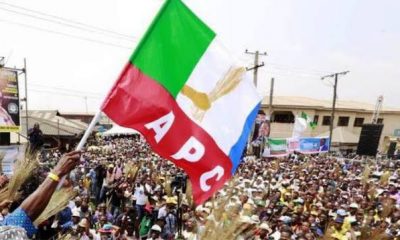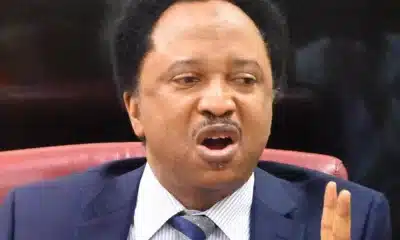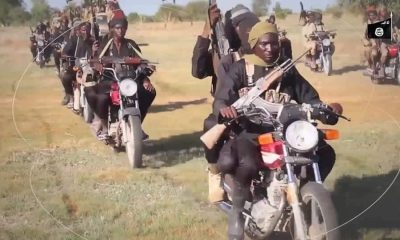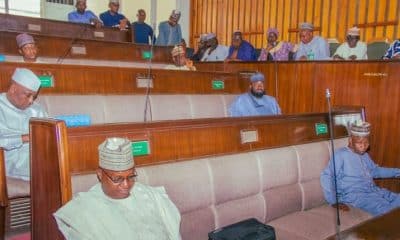Nigeria News
El-Rufai Reveals How Some Southern Kaduna Elders Humilated His Deputies
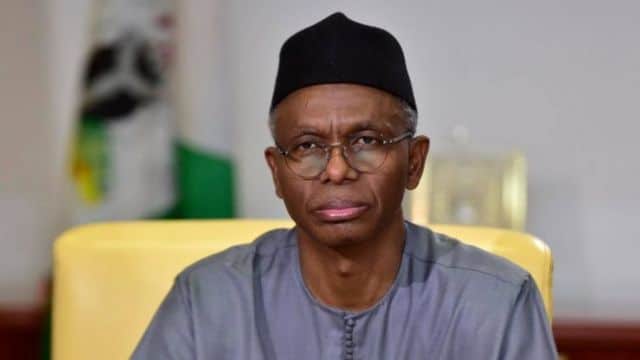
Ex-governor of Kaduna State, Nasir El-Rufai, had revealed how some senior figures from the southern region of the state humiliated his deputies, who were also from this area.
El-Rufai shared these comments during a keynote speech at a book launch and retirement celebration for Ishaq Akintola, the founder of Muslim Rights Concern (MURIC), on Saturday.
Kaduna State, divided into three senatorial zones, is characterized by a predominantly Muslim population in the North and Central areas, and a primarily Christian population in the South.
It’s a longstanding tradition for Muslim governors of Kaduna State to select Christian deputies from the Southern Kaduna region.
Serving as governor from 2015 to 2023, El-Rufai shed light on his experience during his first tenure.
His initial choice for deputy was Barbanas Bala, a southern Kaduna Christian and long-term friend. El-Rufai said that Bala was “almost frustrated out of office in the first two years.”
The ex-governor disclosed that certain unnamed southern Kaduna elders resented him for rejecting a list of potential deputy governor candidates proposed by what he referred to as “self-appointed, so-called Southern Kaduna Christian elders.”
El-Rufai further noted that Bala’s membership in the minority Moroa ethnic group, rather than the Atyap, Bajju, Jaba or Kagoro groups, contributed to his ill-treatment.
As a result, some individuals labelled Bala a “sellout.” El-Rufai’s comments highlighted the ethnic tensions and political challenges that can arise within regional power dynamics.
He said, “Nothing prepared either Bantex or I for the viciousness with which he was treated by the constituency he was meant to be represented by his presence on the governorship ticket. He offered thrice to resign from office within our first two years in office. Bantex therefore barely made it to the end of our first term, psychologically battered by the hostility and hobbled by a resurgence of ill-health… Bantex lost his bid to represent the Kaduna South Senatorial District in the 2019 election. We lost him a year or so later.”
According to the ex-governor, his experience during his first term in office made him change his mind in selecting a running mate in 2019.
El-Rufai noted that his decision to pick a Southern Kaduna Christian as his deputy governor did not yield unity in the state.
He said he decided to settle for a Muslim Southern Kaduna woman, Hadiza Balarabe, but the hostilities didn’t cease.
The former Governor further stated, “For the 2019 election, my choice of running mate followed the established pattern, except in two particulars: gender and religion. Dr Hadiza Balarabe is from a minority ethnic group (Gwantu) in southern Kaduna, but she is a woman and a Muslim.
“Her choice met with the usual hostility from the same persons that had so battered and demoralised Bantex, my first deputy. But it demonstrated that not everyone who mouths diversity and inclusion is actually interested in those values. The first woman to be elected as deputy governor from the far north of Nigeria was not seen as a pathfinder, a breakthrough for gender and a reaffirmation of the possibility of democracy to elect persons from minority and excluded groups. Only one marker of identity seemed to matter in such quarters. But the fact that Bantex had that marker – religion – had saved neither him nor I from opprobrium.”
He noted that despite being of the same faith as Mrs Balarabe, their administration was dedicated to the equality of all people of the state.
El-Rufai added, “Dr Hadiza Balarabe and I ran a government dedicated to the equality of persons, resolutely pursuing the policy of common citizenship. Despite sharing the same faith, we were bound by the injunctions of our Islamic faith, our oaths of office and our societal values to exercise our duties with fairness and justice. Electing persons of the same faith is neither a threat to the rights of others nor a blow to inclusion: it may only have highlighted other identities that tend to be excluded, as we did in Kaduna State.
“If we want our citizens to invest in common causes, to work in mutual endeavours for progress, to build a society of merit, hard work and fairness, we must deemphasise religion and region, and their vicious twin ethnicity, in making political decisions and choices. Let us build a society centred around citizens, who can live and pursue livelihoods everywhere, with constitutional rights that apply to all.”



